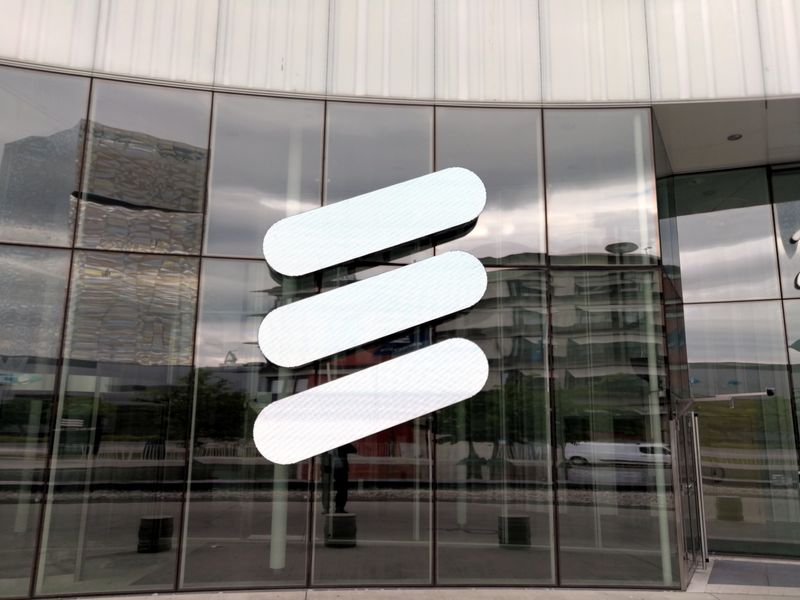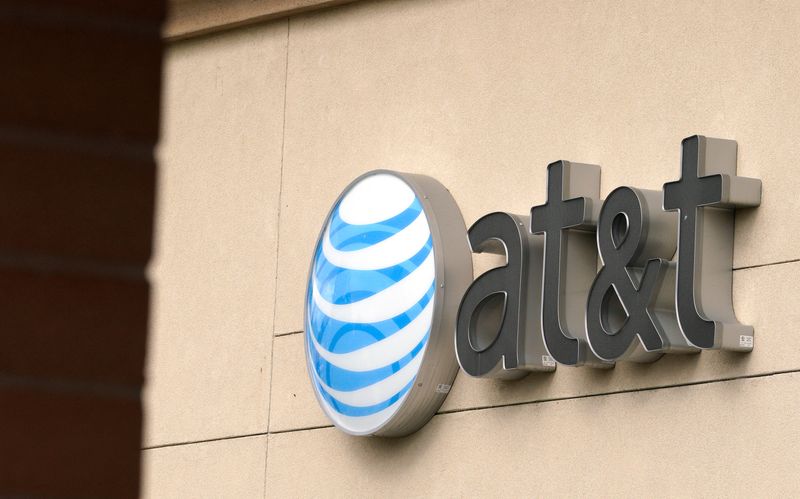By Supantha Mukherjee
STOCKHOLM (Reuters) - AT&T (NYSE:T) has chosen Ericsson (BS:ERICAs) to build a telecom network using a new cost-cutting technology ORAN that will cover 70% of its wireless traffic in the United States by late 2026.
The $14 billion, five-year deal will boost Ericsson's share in one of the largest telecom players in the world, and erode the presence of rival Nokia (HE:NOKIA) in the North American market.
Ericsson shares rose 9% and were on track for its best day in years, topping the pan-European STOXX 600. Nokia shares fell 8% to the bottom of the index early on Tuesday, following AT&T's announcement late on Monday.
ORAN, or open radio access network, promises deep cost cuts for telecom operators as it uses cloud-based software and gear from many suppliers instead of relying on proprietary equipment supplied by companies such as Nokia, Ericsson and Huawei which do not work with each other.
While telecom providers such as Telefonica (NYSE:TEF) and Vodafone (NASDAQ:VOD) have tested the technology, mass adoption has been slow. New networks by Dish and Japan's Rakuten use Open RAN.
AT&T has been analysing Open RAN for six months with a team of hundreds, an executive said, and has looked at multiple vendors and sought proposals.
"All of the new equipment that we are going to be putting out will be Open RAN capable," Chris Sambar, executive vice president, Network, at AT&T told Reuters.
AT&T's spending could approach $14 billion over the five-year term of the contract with Ericsson, the company said.
Winning the Open RAN deal will make Ericsson the largest supplier to AT&T as it slowly takes over Nokia's share, the company said.
Nokia said revenue from AT&T, which accounted for 5-8% of its mobile networks unit, will decrease over the next 2-3 years.
The Finnish company expects the unit to remain profitable over the coming years but it would delay the timeline of achieving double digit operating margin by up to 2 years.
"Despite the contract loss, Nokia will still have sales to AT&T on other areas, hence not a completely broken relationship," said Mads Lindegaard Rosendal, analyst at Danske Bank Credit Research.
SAMSUNG SETBACK
By 0831 GMT, Ericsson shares rose almost 10% in Stockholm to a five-month high, set for its biggest two-day jump since July 2020.
Nokia extended Monday's losses after speculation about the AT&T move. The stock has fallen as much as 15.9% since Friday's close to briefly hit its lowest since March 2020. The stock was last down 8.1%, leading blue chip fallers in Helsinki.
In 2020, Nokia also suffered a setback when Samsung (KS:005930) won a $6.64 billion contract to supply 5G equipment to Verizon (NYSE:VZ) in the U.S.
Open RAN has struggled as major telecom vendors resisted opening up their proprietary interfaces for other companies over fears of losing business.
Ericsson has agreed to open up those interfaces across its footprint, Sambar said.
"You've got to give them something that they really want and in return, we are going to get something that not only AT&T wants but the entire industry wants," he said.
AT&T will still have contracts with other vendors outside this deal.

AT&T expects fully integrated Open RAN sites operating in coordination with Ericsson and Fujitsu, starting in 2024. In 2025, the company's network will also have equipment from suppliers such as Corning (NYSE:GLW), Dell Technologies (NYSE:DELL), and Intel (NASDAQ:INTC).
"This is not a subscale trial. This is us and our partner going 100% all in on this, so we think this is really going to change the industry," Sambar said.
